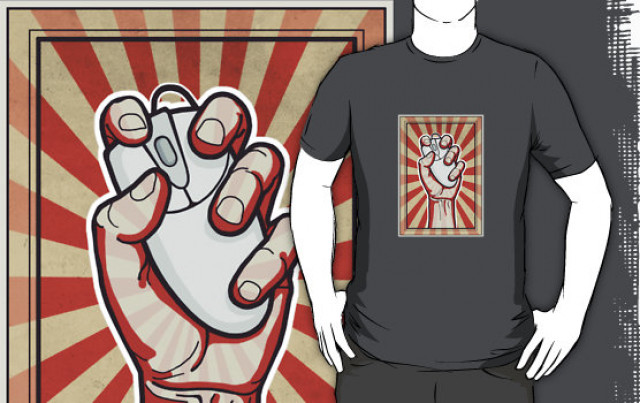Gladwell’s concluding statement is as follows:
(Social networking is) a form of organizing which favors the weak-tie connections that give us access to information over the strong-tie connections that help us persevere in the face of danger. It shifts our energies from organizations that promote strategic and disciplined activity and toward those which promote resilience and adaptability. It makes it easier for activists to express themselves, and harder for that expression to have any impact. The instruments of social media are well suited to making the existing social order more efficient. They are not a natural enemy of the status quo. If you are of the opinion that all the world needs is a little buffing around the edges, this should not trouble you. But if you think that there are still lunch counters out there that need integrating it ought to give you pause.
Google News informs me that the article received over 100 related blogposts, articles and follow-ups. The vast majority – the main-page blog, the article that gets into the Guardian – think he’s “wrong”.
Leo Mirani of the Guardian points out that Twitter, for the first time, made middle-class Indians “interested” in the Kashmir protests. “Gladwell ignores the true significance of social media, which lies in their ability to rapidly spread information about alternative points of view that might otherwise never reach a large audience.”
It's true, Gladwell didn’t talk about Kashmir – a deliberate omission, say many detractors. Nor did he mention the Obama campaign, says HuffPo writer Sam Graham-Felsen, author of “What Gladwell got wrong: beyond ‘Like Button’ activism.” The internet was a powerful tool in organizing the Obama campaign, says Graham-Felsen: “while Obama's supporters can't be compared to the Greensboro lunch counter protesters, their engagement was far from trivial.”
Their contribution wasn’t trivial, he says, because they donated huge sums to the election campaign during an economic downturn.
The posts follow a similar in format. Malcolm “Got it Wrong” captions one post. Gladwell’s “Twitter-Hating article.” Malcolm “Misses the Mark.” They then present half a dozen counter-examples, all of which have nothing in common except a vast Twitter and Facebook presence. What about Haiti? asked one. What about Iran, said another. What about Greenpeace, the elections, and incidences of a journalist getting beaten up or a health care facility brought to justice for malpractice. As Pakistanis, we can join the chorus. What about the Sialkot lynching? We would’ve never known, had it not been for Twitter and Youtube.
Most articles also concede that Gladwell makes the distinction between boots-on-the-ground activism and the cloud of silent supporters hovering around them. Which is not incorrect, they say, but he underestimates how important knowing and letting someone else know about an election, election fraud, or protest is.
We mean to say, he trivializes how important our job is. And we don't like it.
The mantra of “social networking” is “spreading awareness.” Twitter users let the world know that Iran was protesting, it let people know of an earthquake in Haiti and riots in Kashmir.
Here’s how the fairytale goes: you’re a middle-class Indian or Pakistani, and you learn by tweet that the people whom your governments screwed over for sixty-three years are in fact, still bleeding and dying. You sit up and take notice. You’ll re-tweet it, blog about it. The major news network you watch will realize that you and your coterie of valued customers ‘likes’ Kashmir protest, and will send a reporter up to Srinagar. Images will flood the screen, politicians will sweat, speeches will be made, more blogs, tweets and re-retweets. Some scrap of paper may be signed, money might be raised, petitions written. But way before that, a mighty chorus will have struck up – all hail social media, look at how much awareness was raised!
Why all the fuss? Is Kashmir an independent country? Have protesters stopped being killed? Has Martin Luther King made his “I have a dream” speech and has the Civil Rights Act been signed? Are there more boots in the ground, and are they going to stay there?
No, God no. We’re just celebrating the fact that we know. The fundamental problem – of the breakdown of political institutions for activism, of weakened student unions and community organizations – has not changed.
Celebrating social networking’s role in aiding activism is like celebrating the car that drove you to the protest. It’s like holding an award ceremony for the kid who passes out pamphlets on the Montgomery Bus Boycotts. It’s like celebrating yourself, really, for your enlightenment from a sheltered middle-class university grad to a revolutionary, trailblazing Twitterati getting a million hits and a million likes. It's great that everyone can be an activist without having to skip classes to join a rally, having to spend hours in the heat getting tear-gassed by the police or having to take orders from a hierarchical organization.
One commenter on the “Gladwell gets it wrong – again” post writes:
Many advocates of social media seem to imply that the various activist movements of recent years would not have developed in the way they did or, worst, would not have happened at all if it wasn’t for Twitter. Which is patently absurd. Perhaps social media facilitated or modestly accelerated the spreading of the message, but it was by no means responsible for it.
Another blog, another comment:
I have to disagree that a $5 donation on Facebook is equivalent to a direct action or an activist with real skin in the game, willing to show up in a community, have challenging conversations with decision makers, develop solutions with stakeholders and the like.
The commentators have it right. Just because we want to feel good about “knowing” and “blogging” doesn’t mean we get to glorify the Internet or, in the instance of one post, redefine activism to fit our “digital world” better.
Gladwell got it right, for correctly using a phrase that’s become rapidly misused and totally unstylish – ‘status quo.’ The status quo does not mind being blogged or re-tweeted, it does not mind a million hits against it on Facebook. I’m no activist, but I have a feeling that if I’m ever truly brave enough to fly in the face of the status quo, like those black kids who sat down at a white lunch counter in 1960, or the hundreds of Kashmiri protesters facing down barrels of guns, I probably will have bigger things on my mind than how many ‘likes’ I have on my Facebook wall.



COMMENTS
Comments are moderated and generally will be posted if they are on-topic and not abusive.
For more information, please see our Comments FAQ